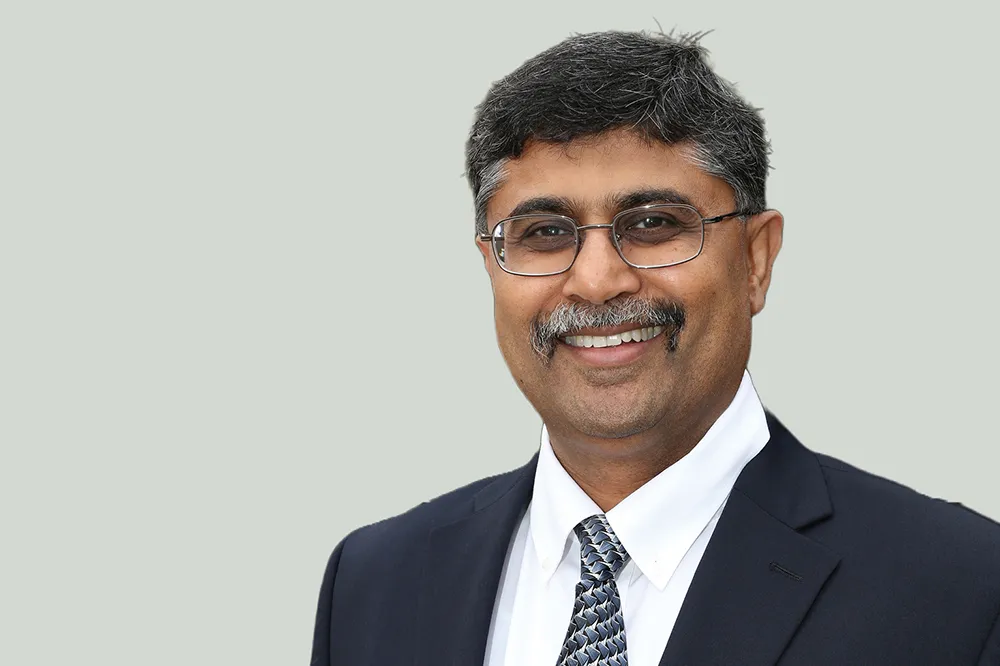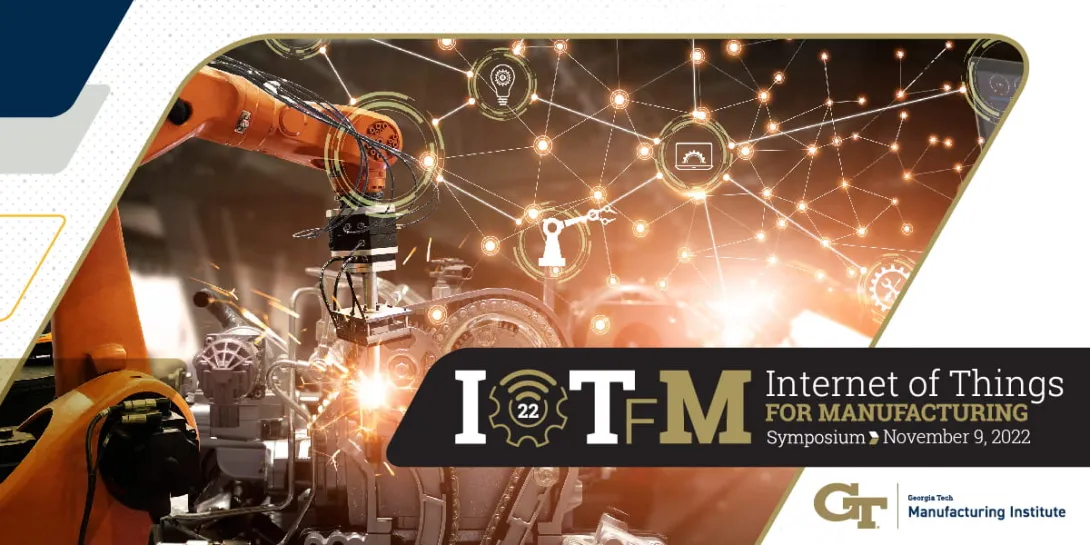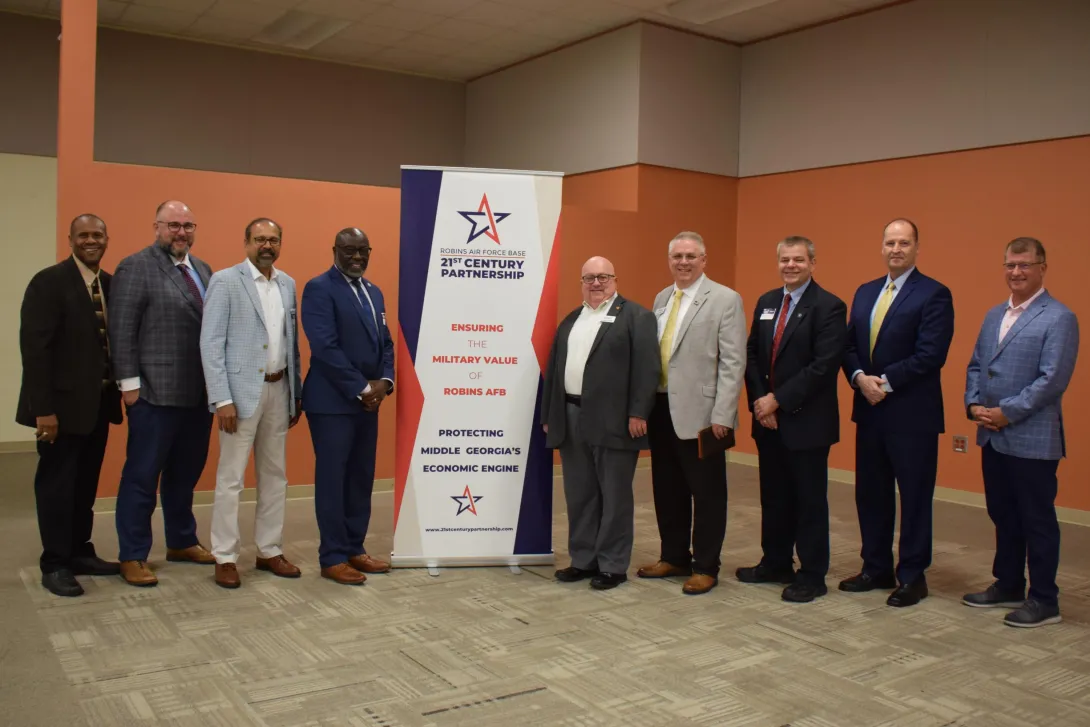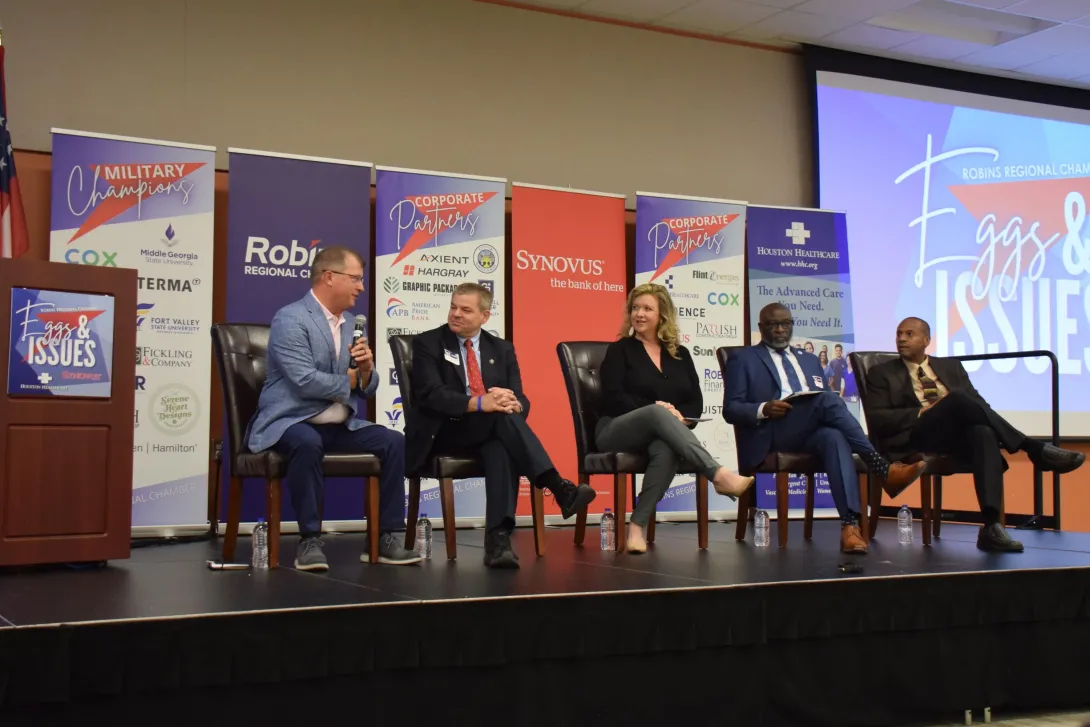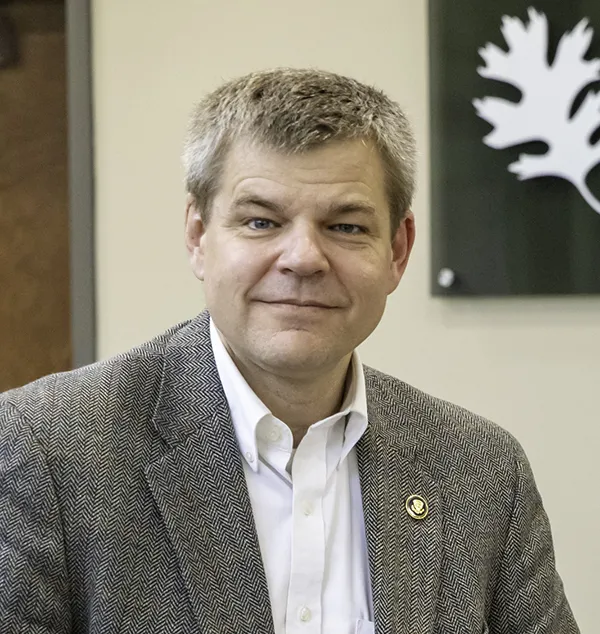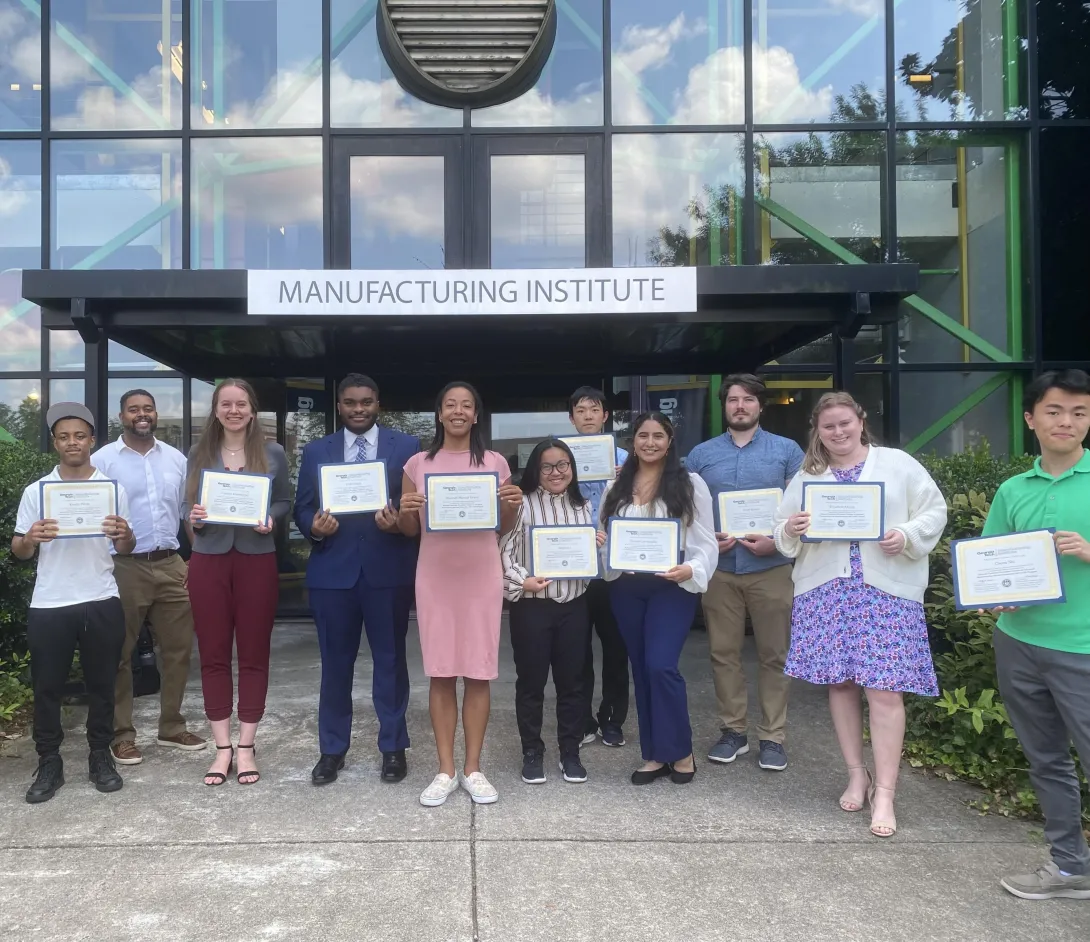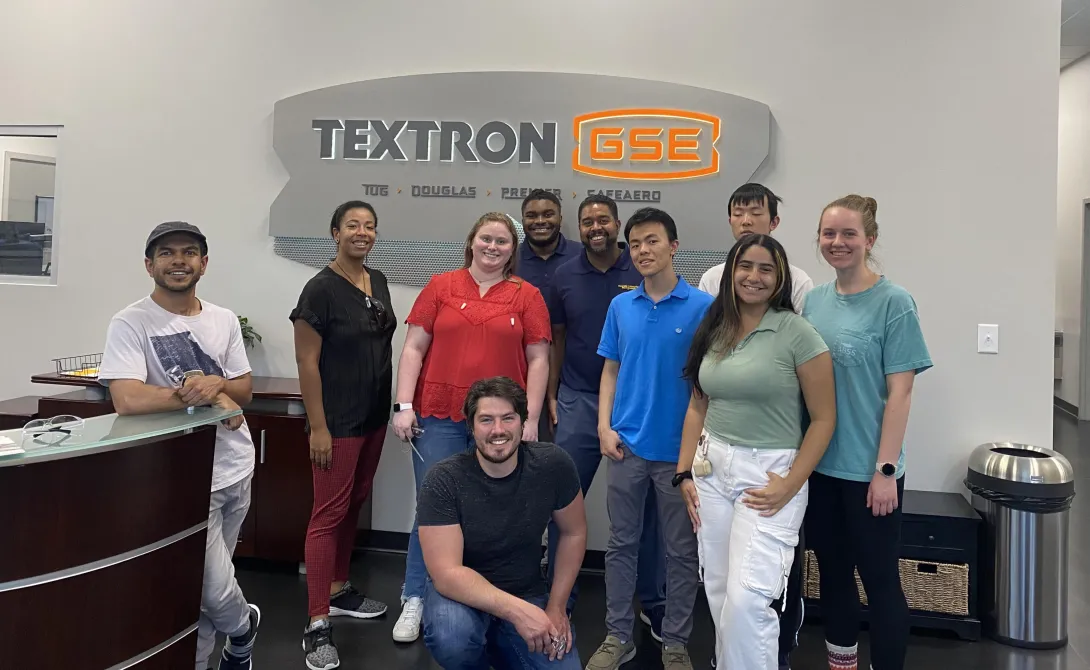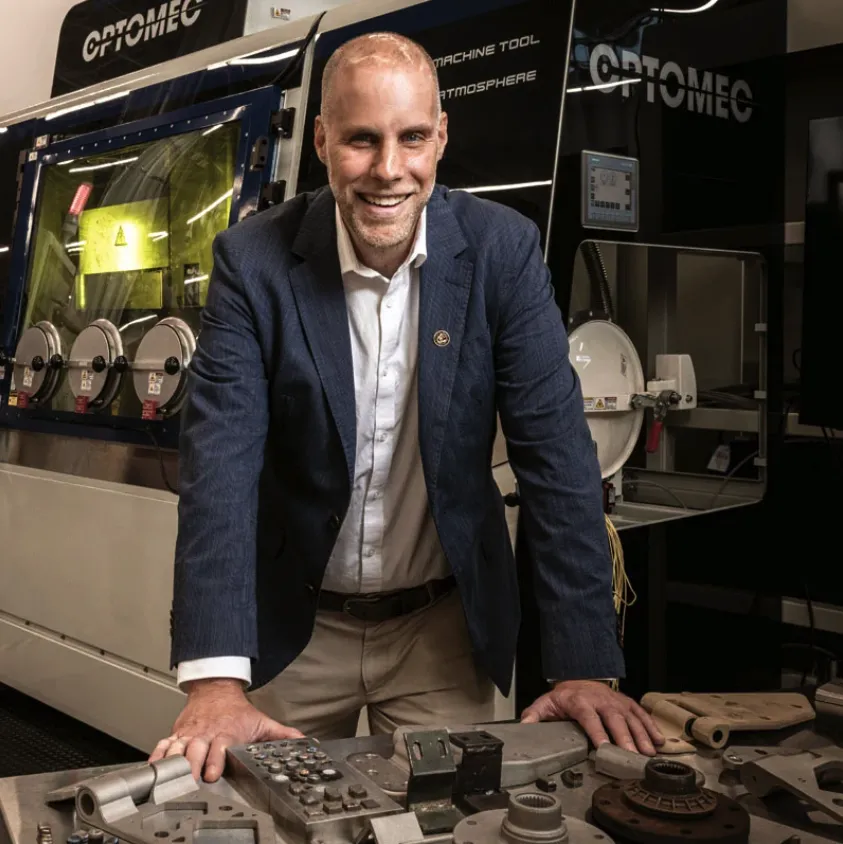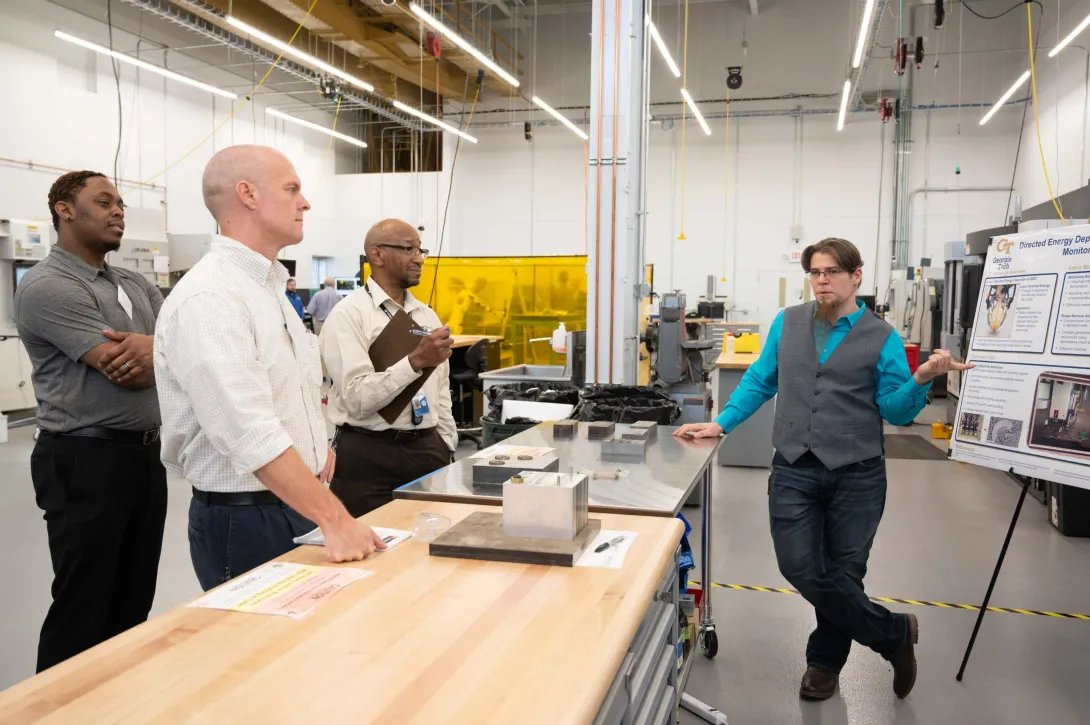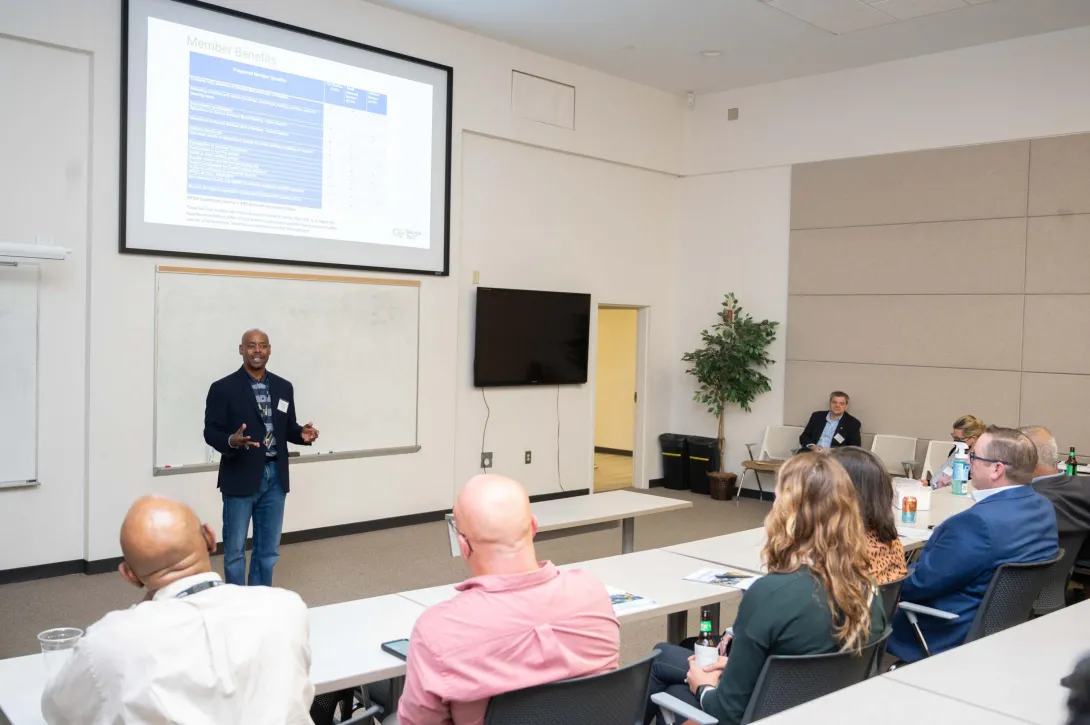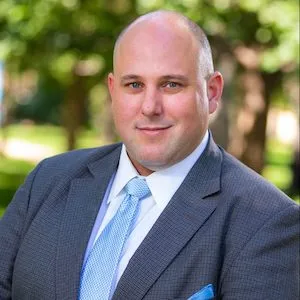Jan. 18, 2023
This year, the Novelis Scholars program review committee at the Georgia Institute of Technology selected seven graduate scholars and four undergraduate scholars. This is the second year of the Novelis scholars program.
The Novelis Innovation Hub at Georgia Tech launched the Novelis Scholars program in 2021. The program seeks to recognize and cultivate top graduate students conducting research in various aspects of sustainability, high-throughput materials discovery, surface functionalization, and artificial intelligence (AI)/data science applications in materials, manufacturing, and supply chain technology.
Novelis has partnered with Georgia Tech to collaborate on research and development, and promote the education of the next generation of engineers dedicated to making better products that lead to a more sustainable world. Novelis is headquartered in Atlanta with a global footprint, over 12,500 employees, and recorded $17.1 billion in net sales for its 2022 fiscal year. Novelis expanded its research partnership with Georgia Tech in 2021.
The 2022-2023 Novelis Scholars are:
Graduate
- Bettina Arkhurst - Ph.D. candidate in the George W. Woodruff School of Mechanical Engineering
- Juanita Hidalgo - Ph.D. candidate in the School of Materials Science and Engineering
- Conlain Kelly – Ph.D. candidate in Computational Science and Engineering Undergraduate
- Walter Parker - Ph.D. candidate in the George W. Woodruff School of Mechanical Engineering
- Sushree Jagriti Sahoo - Ph.D. candidate in the School of Chemical and Biomolecular Engineering
- Alexandra (Lexie) Schueller - Ph.D. candidate in the George W. Woodruff School of Mechanical Engineering
- Sakshi Sharma - Master’s student in the School of Materials Science and Engineering
Undergraduate
- Daniel Johnson - pursuing his B.S. in mechanical engineering
- Suemin Lee - pursuing her B.S. in civil engineering with minors in sustainable cities and computer science
- Brandon Perry - pursuing his B.S. in materials science and engineering
- Sarang Pujari – pursuing his B.S/M.S. in computer science with a minor in climate change
Detailed profiles for this year’s 2022-2023 Novelis Scholars can be found here.
The Novelis Innovation Hub expects to issue its next call for Novelis Scholars for the 2023‐2024 Academic Year in late Spring/early Summer 2023.
News Contact
Dec. 01, 2022
Shreyes N. Melkote, who holds the Morris M. Bryan, Jr. Professorship in the George W. Woodruff School of Mechanical Engineering, has been awarded a $3 million Future Manufacturing Research Grant from the National Science Foundation (NSF). Melkote, who is also the Associate Director of the Georgia Tech Manufacturing Institute and Executive Director of the Novelis Innovation Hub, will act as principal investigator alongside four other researchers, including Woodruff School Professor Emeritus David Rosen, and will explore a data-driven approach to cyber manufacturing. The grant will also support Melkote’s efforts to work with academic and industry partners to develop educational tools to train a future manufacturing workforce from diverse backgrounds.
“We are excited to have the resources that the NSF has provided,” Melkote said. “It’s the best type of resource because it allows us to do basic research.”
Cyber manufacturing looks to leverage recent advances in artificial intelligence and machine learning, cloud technology and the expanding reach of the Internet-of-Things to reduce the cost and time of producing discrete parts. Presently, the manufacturing process is compartmentalized, with design, fabrication, and distribution heavily reliant on direct communication between the parties, and often involves multiple iterations of a design before the customer’s needs are met.
In a future cyber manufacturing ecosystem, the process is digitally unified across the supply chain and potential issues in fabrication can be flagged automatically and early in the design process, minimizing the need for multiple prototypes. The final design can then swiftly be routed to those best equipped to produce the product based on the specifications.
This vision of a fully automated, interconnected process has long been sought after and is considered the ‘holy grail’ of discrete parts manufacturing.
“It's an old problem,” Melkote said. “But we have new ways of potentially trying to solve it, and we have a critical mass of people and resources to help solve, or at least make a significant dent, in solving the problem.”
A crucial step in solving the problem requires digitizing and automating the complex series of decisions that begin when a new design for a product is completed. What are the manufacturing processes (and machines) required to produce the design? What processes create the most durable build, or the most cost-efficient? Can the design be altered for manufacturability without compromising functionality and quality?
For mass-produced discrete products or parts built to universal standards, these are questions to which suitable answers have been found through trial-and-error, but bespoke or new designs often require specialized knowledge about manufacturing processes and their capabilities. A company or individual will use their current level of understanding to discern how to move forward with a brand-new design.
“Fundamentally they are harnessing the knowledge derived from data they have tucked away somewhere and then using that to actually take a shot at figuring out how to make it,” Melkote explained. “But it would be great if they had all of these capabilities in an automated way. This grant is focused on how you generate the complex knowledge that individuals have acquired through experience.”
Melkote’s interdisciplinary approach will use generative machine learning and other artificial intelligence techniques to help automate this complex decision-making process. If a computer can infer the capabilities and limitations of an industrial manufacturing process and associated machines, then it should be able to make intelligent deductions about the entire manufacturing process, at least in theory. Extracting the data necessary to make this happen requires new methods that Melkote and his co-investigators will research.
“If I can teach a computer to be able to learn these things, the more data from successfully produced parts I can provide it, then its learning will improve and its ability to get close to telling me what all the types of things I can produce using a given process on a given machine will improve.”
The models and algorithms that would run this process could then be embedded in an automated cyber manufacturing service, which can analyze an uploaded design and provide a customer with instant feedback regarding recommended modifications, and projected costs, or even generate instructions and send them to the right machine. The work could see sweeping changes made to several manufacturing industries and democratize the way products are designed and made.
Alongside Rosen, Melkote will work closely with three other researchers, two of which have ties to Georgia Tech, including Matthew Gombolay, an assistant professor in the School of Interactive Computing, and Mahmoud Dinar, a former postdoctoral fellow at the Woodruff School and current Assistant Professor at California State University-Sacramento. Dr Gaurav Ameta, a research scientist at Siemens Corporate Technology will also work as co-principal investigator.
The grant is part of a wider national initiative that saw more than $30 million awarded to university-based research projects on advanced manufacturing and preparation of the manufacturing and STEM workforce for the future.
Article by Ian Sargent
News Contact
Nov. 22, 2022
The Georgia Tech Manufacturing Institute recently hosted its latest Internet of Things for Manufacturing (IoTfM) Symposium, focused on emerging IoT technologies in the manufacturing sector.
The yearly event was led by Andrew Dugenske, director of the Factory Information Systems (FIS) Center and a principal research engineer at Georgia Tech. Dugenske’s FIS Center focuses on advances in factory architectures, machine communication, cloud computing, edge devices, machine learning, artificial intelligence, overall equipment effectiveness and cybersecurity.
The event delivered fresh insights from more than 20 industry leaders. Speakers shared exclusive learnings from actual IoTfM implementations. Industry thought leaders, major manufacturers and respected experts participated in this year’s eighth annual symposium.
Presenters this year included representatives from Ford Motor Company, Kimberly-Clark, Autodesk, McKinsey & Company, Capgemini, ACS, QCells, Intuitus, Georgia Tech Manufacturing Institute, Georgia Department of Economic Development, University of New Hampshire, and researchers across Georgia Tech.
John Morehouse, director of manufacturing for the Georgia Center for Innovation commented, “Having companies present their use cases is so valuable to other manufacturers and the resources that want to support them.”
Missed the symposium? You can download and view all presentations by visiting the 2022 IoTfM symposium webpage.
The event was sponsored by the state of Georgia’s innovation and manufacturing group, the Georgia Tech Manufacturing Institute and the Georgia Tech Factory Information Systems Center.
To learn more or to join next year’s invitation list, contact Andrew Dugenske at dugenske@gatech.edu.
News Contact
Sep. 09, 2022
Thomas Kurfess, executive director of the Georgia Tech Manufacturing Institute, was one of the featured panelists at the Robins Regional Chamber’s Eggs and Issues breakfast event on September 8. The topic of discussion was the Robins Air Force Base (RAFB) 21st Century Partnership.
The 21st Century Partnership, a Georgia nonprofit corporation, is the only community enterprise dedicated solely to preserving the military presence of Robins Air Force Base, while helping Middle Georgia communities prepare to avert potential efforts to marginalize the missions of the base. RAFB hires approximately 300 scientists and engineers each year.
The Eggs & Issues breakfast series, sponsored by the Robins Regional Chamber, focuses on timely topics of local interest related to their middle Georgia community. This event discussed the 21st Century Partnership’s priorities, progress, and engagement opportunities.
The panelists included:
- Brigadier General John Kubinec, USAF, retired, president and CEO, 21st Century Partnership
- Angie Gheesling, executive director, Houston County Development Authority
- Paul Jones, president, Fort Valley State University
- Ivan Allen, president, Central Georgia Technical College
- Thomas Kurfess, executive director, Georgia Tech Manufacturing Institute
Aaron Stebner, associate professor in the Woodruff School of Mechanical Engineering, and Greg King, associate vice president for economic development at Georgia Tech, were also representing Georgia Tech at the event. Kurfess, professor in the Woodruff School of Mechanical Engineering and the HUSCO/Ramirez Distinguished Chair in Fluid Power and Motion Control, regularly visits Robins Air Force Base to support a long-standing relationship with Georgia Tech.
Stebner and Kurfess are leading a $65 million U.S. Department of Commerce economic development administrative award to create a Georgia Artificial Intelligence Manufacturing Technology Corridor with the vision of collaborative innovation and economic development across all regions of the state.
News Contact
Aug. 23, 2022
Thomas Kurfess, executive director of the Georgia Tech Manufacturing Institute and professor in the Woodruff School of Mechanical Engineering, has been selected to chair options for a national plan for smart manufacturing. This National Academies of Sciences, Engineering, and Medicine-appointed ad hoc committee is tasked with developing options for a national plan for smart manufacturing technology development and deployment.
The committee's final report will examine technical frameworks and processes, identify possible timelines and necessary resources, and explore policies and general roles for government, industry, and academia to address near-, medium-, and long-term challenges to improve the productivity and energy efficiency of the manufacturing sector of the United States and ensure U.S. competitiveness. A particular focus will be given to system integration issues, including incorporating manufacturing science, materials science, energy science, and other critical domains.
For information gathering and community engagement, the committee will plan and organize three workshops on the following topics: (1) state of the art smart manufacturing and future directions and needs; (2) potential broader impacts of smart manufacturing; and (3) education, training, and workforce needs for smart manufacturing. Videos and materials from these public workshops will be posted online. The input received during these workshops will serve as input for the final consensus study report.
Committee members include:
CHAIR
Thomas R. Kurfess
Thomas R. Kurfess is the HUSCO/Ramirez Distinguished Chair in Fluid Power and Motion Control and Professor of Mechanical Engineering at Georgia Tech. During 2019-2021 he served as the Chief Manufacturing Officer, and the Founding Director for the Manufacturing Science Division at Oak Ridge National Laboratory. During 2012-2013 served as the Assistant Director for Advanced Manufacturing at the Office of Science and Technology Policy in the Executive Office of the President of the United States of America, where he was responsible for coordinating Federal advanced manufacturing R&D. He was President of SME in 2018, and currently serves on the Board of Governors of the ASME. His research focuses on the design and development of advanced manufacturing systems targeting secure digital manufacturing, additive and subtractive processes, and large-scale production enterprises. He is a member of the National Academy of Engineering and is a Fellow of ASME, AAAS, and SME.
He received his S.B., S.M. and Ph.D. degrees in mechanical engineering from M.I.T. in 1986, 1987 and 1989, respectively. He also received an S.M. degree from M.I.T. in electrical engineering and computer science in 1988.
MEMBER
Richard D. Braatz
Richard D. Braatz is the Edwin R. Gilliland Professor of Chemical Engineering at the Massachusetts Institute of Technology (MIT), where he is affiliated with the MIT Energy Initiative, the Department of Chemical Engineering, the Center for Biomedical Innovation, the Center for Computational Science and Engineering, and Machine Intelligence for Manufacturing & Operations. He was the Millennium Chair and Professor of Chemical and Biomolecular Engineering at the University of Illinois at Urbana-Champaign and a Visiting Scholar at Harvard University before moving to MIT. His primary research expertise is in applied mathematics and control theory and their application to the smart manufacturing of complex chemical and biological products including lithium-ion batteries, advanced polymers, vaccines, and monoclonal antibodies. Honors include the IEEE Control Systems Society Transition to Practice Award, the Technical Innovation Award from the International Society of Automation, the Engineering Research Council’s Curtis W. McGraw Research Award, and the American Automatic Control Council’s Donald P. Eckman Award. He is a Fellow of AIChE, AAAS, IEEE, and IFAC, and a member of the National Academy of Engineering. He received the B.S. from Oregon State University and the M.S. and Ph.D. from the California Institute of Technology – all in chemical engineering.
MEMBER
Jian Cao
JIAN CAO is the Cardiss Collins Professor and the founding Director of NIMSI, the university research center on manufacturing science and innovation at Northwestern University. Cao considers manufacturing as an integration platform and specializes in innovative manufacturing processes and systems, particularly dieless incremental forming process and laser processes. Cao received her Ph.D. in mechanical engineering from M.I.T. Cao is a member of the National Academy of Engineering (NAE) and an elected Fellow of the American Association for the Advancement of Science (AAAS), ASME, CIRP, and SME. Her major research awards include the ASME Milton C. Shaw Manufacturing Research Medal, SME Gold Medal, DoD Vannevar Bush Faculty Fellowship, ASME and Pi Tau Sigma Charles Russ Richards Memorial Award, and SME Frederick W. Taylor Research Medal. Prof. Cao is the Editor-in-Chief of the Journal of Materials Processing Technology. She served as Associate Vice President for Research at Northwestern University, President of the SME North America Manufacturing Research Institute, and a program director at NSF. Dr. Cao is a board member of SME Board of Directors, and of mHUB, Chicago's first innovation center focused on physical product development and smart manufacturing.
MEMBER
Krystel K. Castillo-Villar
Krystel Castillo is an expert in building an intellectual bridge between modeling and optimization of complex smart manufacturing supply chains, integrating energy efficiency and cybersecurity. As Energy VP for DOE’s Cyber Manufacturing Innovation Institute (CyManII, $130M), she leads development of Cybersecure Energy & Emissions Quantification (CEEQ), which captures embodied energy and emissions at the product level throughout the digital supply chain. CEEQ optimizes energy consumption and emissions in advanced manufacturing contributing to saving 1 quadrillion BTUs. These discoveries can revolutionize smart manufacturing and enable secure automated processes and supply chain networks. As professor she has executed 39 grants ($11M). She is the Director of the Texas Sustainable Energy Research Institute (since 2017) managing a ~$4.28M/yr. portfolio and a $50M Alliance with CPS Energy. She was inducted to the UTSA Academy of Distinguished Researchers (2021), received the GreenStar Endowed Professorship in Energy (2015), and selected to participate in the National Academy of Engineering’s 2015 U.S. FOE and 2019 E.U.-U.S. FOE symposiums.She has taught manufacturing courses for more than 12 years and mentored 24 graduate students. She has served as principal investigator in 5 training grants. She is actively recruiting and mentoring next-generation minority leaders and educators in advanced manufacturing.
MEMBER
Lili Cheng
Lili Cheng is a Corporate Vice President at Microsoft, and manages the Emerging Technology Group at Microsoft, is responsible for Conversational AI and the Industrial Metaverse in Microsoft’s Cloud and AI division. She partners with start-ups to large-scale enterprises, to identify areas of collaboration, drive innovation and deliver AI driven products and experiences. Cheng has a long history of research and AI with Microsoft. Cheng founded the Social Computing Group and Future Social Experiences (“FUSE”) Labs in Microsoft Research and works with top universities, and researcher around the world to help develop design and social science curriculum via the Microsoft Design Expo and the Social Computing Symposium. She was the Director of User Experience for Microsoft Windows and has innovated on technical infrastructure in the areas of real time data, search, and AI tools for Microsoft Azure. Prior to Microsoft, Cheng worked in Apple Computer’s Advanced Technology Group on the User Interface research team, where she developed QuickTime Conferencing and QuickTime VR. Lili serves on the advisory board for AI4All, which partners with top universities to amplify diverse AI talent, and is on the board of Connected Camps, a learning organization focused on online learning, governance, and online social interaction. She has been recognized by Time Magazine (“Future of AI”), Forbes (“Women@Forbes 2018”), Fast Company (“Most Creative People 2016”), New York University (“Tisch 50th Anniversary Creativity Award”). She has given numerous keynotes and interviews including Wired, Forbes, O’Reilly Media, SXSW. Cheng was born in Tokyo, grew up in Omaha Nebraska, and lives in the Seattle area with her husband, and has three sons.
MEMBER
James F. Davis
As Vice Provost IT, Jim has broad responsibilities for data and technology solutions in support of UCLA’s digital research and scholarship mission. Within UCLA, Jim co-sponsors the Institute for Digital Research and Education (IDRE). He also has oversight of the Office of the Chief Privacy Officer and the campus Disabilities Computing Program. Nationally, Jim has program oversight and is vice chair of the Governance Board for DOE’s Clean Energy Smart Manufacturing Innovation Institute (CESMII) and was a co-founder of the original Smart Manufacturing Leadership Coalition. He is currently on the Board of Governors of the Manufacturing Leadership Council. In Southern California he is program sponsor of Innovate@UCLA, a partnership with companies engaged in research exchanges and professional development programs in IT leadership. Jim is a Professor in UCLA’s Department of Chemical and Biomolecular Engineering where he does research and consults on AI, machine learning, intelligent systems, monitoring/control, and data/modeling systems across manufacturing industries. Jim was formerly the CIO at UCLA and The Ohio State University and was Board Chair of the Corporation of Education Network Initiatives in California (CENIC). He has past work experience with Amoco Chemicals and is a Fellow of the American Institute of Chemical Engineers.
MEMBER
Robert X. Gao
Robert Gao is the Cady Staley Professor and Department Chair of Mechanical and Aerospace Engineering at Case Western Reserve University in Cleveland, Ohio. He was the Pratt & Whitney Chair Professor in Mechanical Engineering at the University of Connecticut during 2008-2014. His research expertise includes signal transduction mechanisms, multi-resolution signal analysis, and artificial intelligence/machine learning for improving the observability of manufacturing processes and equipment to enhance product quality control. His work has led to the invention of multi-physics sensors and advanced signal processing methods for the in-situ monitoring of manufacturing processes such as plastic injection molding, sheet metal stamping, microrolling, etc. He has published 3 books, over 400 technical papers, including 190 journal articles, and received 13 patents. He is a Fellow of ASME, SME, IEEE, and CIRP, and received several awards from professional societies, including the ASME Blackall Machine Tool and Gage Award, SME Eli Whitney Productivity Award, IEEE Instrumentation and Measurement Society Technical Award, IEEE Best Application in Instrumentation and Measurement Award, etc. In 2020, he was named by SME as one of “The 20 Most Influential Professors in Smart Manufacturing”. Currently he is serving as Chair of the CIRP Collaborative Working Group on AI in Manufacturing.
MEMBER
Satyandra K. Gupta
Satyandra K. Gupta holds Smith International Professorship in the Viterbi School of Engineering at the University of Southern California. He is the founding director of the Center for Advanced Manufacturing at the University of Southern California. His research interests are computer-aided design, physics-informed artificial intelligence, computational foundations for decision making, human-centered manufacturing automation, and robotics. He has published more than four hundred technical articles in journals, conference proceedings, and edited books. He is a fellow of the American Society of Mechanical Engineers (ASME), Institute of Electrical and Electronics Engineers (IEEE), Society of Manufacturing Engineers (SME), and Solid Modeling Association (SMA). He has received numerous honors and awards for his scholarly contributions. Representative examples include a Young Investigator Award from the Office of Naval Research, CAREER Award from the National Science Foundation, Presidential Early Career Award for Scientists and Engineers, Invention of the Year Award from the University of Maryland, Kos Ishii-Toshiba Award from ASME, Excellence in Research Award from ASME Computers and Information in Engineering Division, and Design Automation Award from ASME. He has also received ten best paper awards at international conferences. He earned a Ph.D. in Mechanical Engineering from the University of Maryland. He is a member of National Materials and Manufacturing Board.
MEMBER
Susan N. Houseman
Susan Houseman is Vice-President and Director of Research at the Upjohn Institute for Employment Research. She is a labor economist whose recent research focuses on contract employment arrangements, domestic outsourcing, offshoring, manufacturing, and measurement issues in economic statistics.
She co-directs the Outsourcing Research Network, chairs the Technical Advisory Committee to the U.S. Bureau of Labor Statistics; co-directs the Labor Statistics Program at the Institute of Labor Economics (IZA) in Bonn, Germany; and chaired the National Academies of Sciences, Engineering, and Medicine, Consensus Study on Measuring Alternative Work Arrangements for Research and Policy.. She received her PhD in economics from Harvard University.
MEMBER
Jeannine Kunz
Jeannine Kunz is the Chief Workforce Development Officer for the Society of Manufacturing Engineers. A recognized expert in the field of learning and development for over 20 years, Kunz is at the forefront of workforce management issues, providing forward-thinking learning and development solutions for companies, academia, and individuals. Kunz served on the executive committee of America Makes and is a board member for the National Coalition of Career Development, Chair for National Defense Industrial Association’s Manufacturing Workforce Committee, and sits on CESMII, the Smart Manufacturing Institute, and Advanced Robotics for Manufacturing’s (ARM) Workforce Committees. In 2020, she joined the industry advisory committee for Clemson University’s THINKER graduate program, and in 2022, she was appointed as Board of Director for the Manufacturing Technology Deployment Group. “Crain's Detroit Business” recognized Kunz’s work when the publication selected her as one of its 2018 Notable Women in Manufacturing – in Michigan, as well as one of its 2019 Notable Women in Education. Kunz earned a bachelor’s degree in business and marketing with a concentration in economics from Eastern Michigan University in Ypsilanti, Michigan. She has served on EMU's Alumni Board and the Pittsburgh State University College of Technology Board of Directors.
MEMBER
Chinedum E. Okwudire
Chinedum Okwudire is an associate professor of Mechanical Engineering at the University of Michigan. Prior to joining Michigan, he was the mechatronic systems optimization team leader at DMG Mori USA. He received a PhD degree in Mechanical Engineering from the University of British Columbia in 2009. His research is in smart manufacturing, where he exploits fundamental methods from machine design, control, and computing to boost the performance of manufacturing automation systems at low cost. His research has found applications in 3D printing, machining and nanopositioning. He has received a number of awards and recognitions including the CAREER Award from the National Science Foundation; the Young Investigator Award from the International Symposium on Flexible Automation; the Outstanding Young Manufacturing Engineer Award from the SME (formerly, Society of Manufacturing Engineers); the Ralph Teetor Educational Award from SAE International; and the Russell Severance Springer Visiting Professorship from UC Berkeley. He has co-authored a number of best paper award winning papers on topics related to control, mechatronics and manufacturing. He participated in the 2014 Frontiers of Engineering Education Symposium and has recently served on a NASEM committee for Infusing Advanced Manufacturing in Engineering Education.
MEMBER
Melissa Orme
Melissa Orme, PhD, Vice President, The Boeing Company, oversees Additive Manufacturing activity across the three Boeing business units: Boeing Commercial Airplanes; Boeing Defense, Space and Security; and Boeing Global Services; including metal and polymer flight hardware, as well as research and factory aids to enable product development and increase factory efficiency. Orme is also responsible for guiding the development of the digital thread across the Additive Manufacturing value chain, and the implementation of data driven models from extracted and archived data from the digital thread, utilizing machine learning and artificial intelligence to drive efficiency, quality, and scale within the Additive Manufacturing end-to-end value stream. Other key responsibilities include the development of initiatives geared towards quantifying the positive sustainability trades associated with Additive Manufacturing.
Orme has a diverse professional background and began her career in academia, where she rose to the rank of Full Professor at the University of California, Irvine. In that capacity she developed her internationally renowned research program on net-form manufacturing, where her research resulted in numerous peer reviewed journal articles and 15 U.S. patents. Later, she transitioned to small business, where she served as Chief Technology Officer of Morf3D, a qualified supplier of Additively Manufactured flight hardware to Boeing and other Aerospace and Defense companies. Hence, she has deep experience in technology development through the diverse frameworks of academia, small business, and large corporations. Orme received her PhD, M.S., and B.S. in Aerospace Engineering from the University of Southern California.
MEMBER
Nancy R. Sottos
Nancy Sottos is the Maybelle Leland Swanlund Endowed Chair and Head of the Department of Materials Science and Engineering at the University of Illinois Urbana Champaign. She is leader of the Autonomous Materials Systems (AMS) group at the Beckman Institute for Advanced Science and Technology and holds appointments in the Aerospace Engineering and Mechanical Science and Engineering at Illinois. Her research group develops polymers with biologically inspired autonomous functions such self-healing and regeneration, self-reporting, and self-protection to improve reliability and extend material lifetime. Current research focuses on new energy efficient methods to manufacture polymers and composites with sustainable end-of-life strategies. She is a member of the American Academy of Arts and Sciences, the National Academy of Engineering, and the National Academy of Sciences. She joined the Illinois faculty in 1991 after receiving her B.S. and Ph.D. degrees in Mechanical Engineering from the University of Delaware.
MEMBER
William F. Spriggs
William Spriggs is a professor in, and former Chair of, the Department of Economics at Howard University and serves as Chief Economist to the AFL-CIO. In his role with the AFL-CIO he chairs the Economic Policy Working Group for the Trade Union Advisory Committee to the Organization for Economic Cooperation and Development, and serves on the board of the National Bureau of Economic Research. He is currently, the president-elect of the Labor Employment Research Association, and serves as the Vice Chair of the Board of MDC Inc (Durham, NC). He serves on the Advisory Boards of WorkRise (of the Urban Institute) and the Opportunity and Inclusive Growth Institute of the Federal Reserve Bank of Minneapolis. From 2009 to 2012, Bill was appointed by President Obama, and confirmed by the U.S. Senate, to serve as Assistant Secretary for the Office of Policy at the United States Department of Labor. Some of Bill’s previous work experience includes serving as an Economist for the Democratic staff of the Joint Economic Committee of Congress; and, as staff director for the independent, federal National Commission for Employment Policy. He is a member of the National Academy of Public Administration and the National Academy of Social Insurance; and the 2016 recipient of NASI’s Robert M. Ball Award for Outstanding Achievement in Social Insurance
MEMBER
John W. Sutherland
John W. Sutherland is Professor and Fehsenfeld Family Head of Environmental and Ecological Engineering at Purdue University. Prior to assuming his present position in 2009, he was the Henes Chair Professor of Mechanical Engineering and Director of the Sustainable Futures Institute at Michigan Technological University. He received his B.S., M.S., and Ph.D. degrees from the University of Illinois at Urbana-Champaign. He is one of the world’s leading authorities on the application of sustainability principles to design, manufacturing, and other industrial issues. He has contributed pioneering research and education achievements, and provided leadership to advancing the field of environmentally responsible design and manufacturing. He has served as an investigator on numerous government and industry research projects and has mentored more than one hundred students to the completion of their graduate degrees. He has published over 400 papers in various journals and conference proceedings. Sutherland is a Fellow of SME, ASME, CIRP, and AAAS. His honors and recognitions include the SME Outstanding Young Manufacturing Engineer Award, Presidential Early Career Award for Scientists and Engineers, SAE Ralph R. Teetor Educational Award, SME Education Award, SAE International John Connor Environmental Award, ASME William T. Ennor Manufacturing Technology Award, SME Gold Medal, and AEESP Frederick George Pohland Medal.
MEMBER
Karen A. Thole
Karen A. Thole holds the title of University Distinguished Professor of Mechanical Engineering at the Pennsylvania State University where she directs the Steady Thermal Aero Research Turbine (START) Lab, which focuses on advancing gas turbines for power generation and for sustainable aviation propulsion. Her research is aimed at increasing turbine efficiencies through improving turbine cooling technologies. She uses additive manufacturing to more rapidly advance cooling technologies as well as integrate instrumentation to make measurements not previously possible. Dr. Thole formerly served as the Department Head of Mechanical Engineering at Penn State in which she led the initiation of an online Masters degree in Additive Manufacturing and Design. She is a Fellow of ASME and AIAA. ASME has recognized her impacts with the Heat Transfer Memorial Award and George Westinghouse Gold Medal. In addition, AIAA has recognized her with the Air Breathing Propulsion Award and Thermophysics Award. Dr. Thole holds a Bachelor of Science and Master of Science in Mechanical Engineering from the University of Illinois at Urbana-Champaign, and a Doctorate in Mechanical Engineering from the University of Texas at Austin. She has served on NASA’s National Aerospace Committee and has been a member of two National Academy of Engineering studies including one on low carbon aviation and the other on identifying research needs to advance gas turbines.
News Contact
Aug. 16, 2022
Ten students, including a U.S. Navy veteran, graduated from the 2022 Research Experience for Student Veterans in Advanced Manufacturing and Entrepreneurship (REVAMP) summer program. This student and veteran-focused program is funded by the National Science Foundation (NSF) and hosted each summer by the Georgia Tech Manufacturing Institute (GTMI). GTMI serves as a Research Experience for Undergraduates (REU) site for NSF.
The leader of this REVAMP REU education and work force development (EWD) program is Billyde Brown, Ph.D., EWD director at GTMI and senior research faculty member. Throughout the year, Brown’s role is to create strong partnerships among industry, government, and academia in manufacturing research, development, and deployment while acquiring and managing sponsored research programs. Chuck Zhang, the Harold E. Smalley Professor in the H. Milton Stewart School of Industrial and Systems Engineering and a GTMI-affiliated faculty, serves as the principal investigator of the REVAMP REU program.
Students in the 2022 summer cohort explored a variety of manufacturing research projects with faculty and graduate student mentors from Georgia Tech’s College of Engineering including ceramic 3D printing for bioabsorbable orthopedic implants, metal 3D printing of thixotropic alloys, wireless electrochemical biosensors for bioreactor process monitoring, machine learning and neural networks for optimization of 3D printing and maker-space utilization, slot-die process for large-area polymer coatings, nanowire production, wood composites for green and energy efficient buildings, and microfluidic devices for cell media replacement.
According to participant Valeria Carrasquillo, “I had the opportunity to be a student in the REVAMP Program where I worked with many amazing people and learned a lot through the research.” She is an undergraduate at the University of South Florida majoring in biomedical engineering.
Previous students have performed fundamental research projects in advanced manufacturing topic areas such as additive and hybrid manufacturing, composite joining and repair, cell therapy manufacturing, robotic machining, integrated computational materials engineering, Internet of Things (IoT) sensors, data analytics for adaptive manufacturing, and nanoscale 3D printing.
REVAMP’s major program activities include a seminar series covering a broad array of manufacturing-related topics presented by Georgia Tech faculty and graduate students, external manufacturing plant tours, experiential learning classes on the fundamentals of evidence-based entrepreneurship provided by Georgia Tech’s VentureLab and/or Advanced Technology Development Center (ATDC), a panel discussion from successful minority business enterprise clients of the Minority Business Development Agency (MBDA) Center in Atlanta, and three oral presentations delivered by students to demonstrate their research progress.
A new program element started in 2019 that offered a student veteran orientation, panel discussions, luncheon events, and tours of Georgia Tech Research Institute (GTRI) facilities both on the main campus and Marietta locations that were facilitated together with GTRI veteran faculty and the Georgia Tech Veterans Resource Center director. REVAMP is one of the premier REU programs in the nation for advanced manufacturing research and entrepreneurship training for undergraduate student veterans.
“For the past ten weeks, I have been a part of the National Science Foundation (NSF) REVAMP-REU [program] at Georgia Tech. I worked with Dr. Mark Losego, Dr. Nicolas Somers, and Dr. Alejandro Montón Zarazaga on optimizing the ceramic printing process. I also had the opportunity to work with Brandy Nagel on connecting research to entrepreneurship using the NSF I-Corp model. I am incredibly thankful that I was able to be part of such an amazing program,” said Betsy Moore, a student at Washington and Lee University studying integrated engineering with biology.
This year’s REVAMP-REU 10-week summer program was held from May 25 – August 3 at GTMI located on the Georgia Tech campus.
Students worked under the supervision of different faculty mentors to complete a research project centered on cutting-edge manufacturing science and technology. They also received entrepreneurship training by conducting customer discovery interviews to support a hypothetical product related to their research. As a bonus, eligible students received on-campus housing, $500 towards travel, and a $5,000 stipend.
Congratulations to these student graduates (in bold text) of the summer 2022 REVAMP REU program:
Angela Li
Project: “Mechanical Characterization of Silica Microcapsules for Nanowire Production”
Research mentors: Calib Lanier, Michael A. Filler
Shannan Merced Moore
Project: “Strain-induced Refinement of Grain Size in 3D Printed Zinc Alloys”
Research mentors: Sairam Jaishankar, Dongang Yao
Cobe Smart
Project: “Multi-functional Multi-layer Film Coating on Roll-to-Roll Manufacturing System”
Research mentors: Minwoo Jung, Tequila Harris
Elizabeth (Betsy) Moore
Project: “New Innovative Processes for Additive Manufacturing of Ceramics”
Research mentors: Nicolas Somners, Alejandro Montón Zarazaga, Mark Losego
Kweku White
Project: “Machine Learning to Improve Makerspace Safety and Accessibility”
Research mentor: Amit Jariwala
Owen Shi (and Luka M.)
Project: “Gaussian Mixture Model Multiphysics Simulation for Physics-constrained Neural Network in Additive Manufacturing”
Research mentors: Luka Malashkhia, Jungin Kim, and Yan Wang
Ruoyu (Carl) Li
Project: “A Biosensor for Automating Real-time Therapeutic Cell Growth”
Research mentors: Zhaonan (Zeke) liu, Chuck Zhang
Valeria Carrasquillo
Project: “Wireless Electrochemical Sensor Capsule for Real-time Monitoring in Bioreactors
Research mentors: Aekansh Goel, Eric Vogel, and Billyde Brown
Corinne Drabenstott
Project: “Analysis of Mixing in a Microfluidic Device for Cell Buffer Exchange”
Research mentors: Steven Swingle, Avi Gupta, Todd Sulchek
Tyrel Keener
Project: “Wood-Based Composite for Thermal Management of Buildings”
Research mentors: Yongsong Huang, Akanksha Menon, Kyriaki Kalaitzidou
News Contact
Jun. 10, 2022
The Georgia Institute of Technology has selected Thomas R. Kurfess as the new executive director of the Georgia Tech Manufacturing Institute (GTMI). Kurfess is the HUSCO/Ramirez Distinguished Chair in Fluid Power and Motion Control and professor of mechanical engineering at Georgia Tech. He received his S.B., S.M., and Ph.D. degrees in mechanical engineering from the Massachusetts Institute of Technology (MIT) and received an S.M. degree from MIT in electrical engineering and computer science.
“Chaouki Abdallah, executive vice president for research, and I are very excited about Tom taking on this role. Advanced manufacturing is a top federal priority as an ‘industry of the future.’ Tom’s experience and international reputation from his history in academia, industry, and the government will be a great complement to our existing vibrant community of students, staff, and faculty committed to manufacturing research and education—positioning Georgia Tech to meet regional, national, and global needs,” said Julia Kubanek, vice president for interdisciplinary research at Georgia Tech.
“We’re grateful for the efforts of the search committee led by Professor Meisha Shofner and to the leadership of Professor Ben Wang as executive director of GTMI for 11 years until he stepped down at the end of May. We also appreciate Professor Shreyes Melkote for serving as interim director this month while we finalized Tom’s appointment.”
Kurfess first joined the faculty at Georgia Tech in 1994, and has taken on a variety of special assignments in addition to his teaching and research.
His research focuses on the design and development of advanced manufacturing systems targeting secure digital manufacturing, additive and subtractive processes, and large-scale production enterprises. He is a member of the National Academy of Engineering and is a fellow of the American Association for the Advancement of Science (AAAS), the American Society of Mechanical Engineers (ASME) and the Society of Manufacturing Engineers (SME). He was president of SME in 2018, and currently serves on the Board of Governors of the American Society of Mechanical Engineers (ASME).
During 2019-2021, Kurfess was on leave serving as the chief manufacturing officer at Oak Ridge National Laboratory (ORNL) where he was responsible for strategic planning for ORNL in advanced manufacturing. He was also the founding director for the Manufacturing Science Division at ORNL.
He served as the assistant director for advanced manufacturing at the Office of Science and Technology Policy in the executive office of the President of the United States of America from 2012-2013, where he was responsible for coordinating federal advanced manufacturing research and development.
“For decades, Georgia Tech has led the Nation’s academic institutions in the advanced manufacturing sector. It is an honor for me to be tapped to continue our efforts in this area. I am excited to take the helm at the Georgia Tech Manufacturing Institute (GTMI) in continuing its role as a technology leader in advanced manufacturing for the State of Georgia, the United States, and the world. We will be a conduit enabling the Georgia Tech community in their efforts to accelerate and develop manufacturing technologies and workforce capabilities, providing a forum in which they can openly collaborate, and facilities that are world-class for their efforts. I look forward to engaging a wide range of traditional and nontraditional teams integrating technical areas with business, economic, and policy areas to provide a manufacturing basis for the U.S. and the world that will ensure a strong, just, secure and equitable future for society,” said Kurfess.
“Given that GTMI is one of Georgia Tech’s Interdisciplinary Research Institutes, I look forward to engaging a wide range of traditional and nontraditional teams integrating technical areas with business, economic, and policy areas to provide a manufacturing basis for the U.S. and the world that will ensure a strong, just, secure and equitable future for society.”
The Georgia Tech Manufacturing Institute (GTMI) is one of Georgia Tech’s 10 interdisciplinary research institutes, and an integral part of the broader Georgia Tech research enterprise. In 2021, GTMI celebrated its 30th anniversary. GTMI's mission is to convene industry leaders, government partners, and top researchers to collaborate on the grand challenges facing the U.S. manufacturing industry today: accelerating technology development and deployment, creating quality jobs, ensuring global competitiveness, and advancing economic and environmental stability.
Jun. 01, 2022
Georgia is a place where people know how to make things. Consider that the parts holding rockets together as they blast into space are made in Dodge County. Carbice in Atlanta produces thermal tape for satellites. And Saft America in Valdosta makes advanced batteries that power airplanes, satellites and race cars.
Manufacturing of all types is soaring in the state, with over 11,000 companies employing an estimated 393,500 workers in 2021 – about 9% of Georgia’s workforce. Approximately three-quarters are production workers.
Today’s manufacturing is clearly not the old assembly line. Software and robots operated by highly trained technicians are driving America’s – and Georgia’s – maker resurgence. Even traditionally low-tech operations such as poultry plants are incorporating technology and robotics to automate dirty or dangerous jobs that are hard to fill.
Companies employing these advanced manufacturing practices had a total output of nearly $62 billion in 2019, representing approximately 10% of Georgia’s Gross State Product, according to National Association of Manufacturers (NAM) data.
Georgia has a lot going for it as a rising star in advanced manufacturing. Its reputation as the best state to do business is the result of a host of assets for companies looking to relocate and grow, according to John Morehouse, director of the Georgia Center of Innovation for Manufacturing at the Georgia Department of Economic Development (GDEcD). These assets include a pro-business climate, a trained workforce and a strategic location that allows companies to reach 80% of the U.S. market via truck, rail or plane. And the Port of Savannah is a gateway to (and from) the world.
One of the biggest draws is Georgia Quick Start, the nation’s No. 1 workforce training program that has provided customized training for more than 1 million workers. Another is the increasing flow of venture capital to the region.
Manufacturers are “recognizing this is where there’s a lot of value, and value is what they’re seeking,” says John Avery, director of the Advanced Technology Development Center (ATDC) at Georgia Tech.
Process Control
Maintaining a technological edge doesn’t come cheap. Southwire Company, a maker of wire and cable, is in the midst of a $1 billion investment that is “putting a lot of money into our factories, making a difference for our customers and adding capacity,” says CEO Rich Stinson.
While the process of making wire and cable has changed little over the years, the technology has advanced.
“What has changed is the equipment and the control of the process to make wire and cable,” explains Southwire Senior Vice President William Berry. “We’ve developed better control of motors, better products such as servo motors [that rotate machine parts with high efficiency].”
To grow manufacturing, the state is channeling resources into helping companies get started and improve their processes and technology. GDEcD’s innovation center has “teams that work in agricultural technology, energy technology, information technology, logistics, manufacturing, in aerospace,” says Morehouse. “We talk to them about what their challenges are to growth, and then connect them to the right resources in the state, whether that be an expert in academia, or other companies, or government agencies.”
The center can gear up to assist an entrepreneur with a new product idea or a large company with a production-line challenge.
New Industrial Revolution
The state, along with its agencies and educational institutions, has been pushing adoption of Manufacturing 4.0 (or Industry 4.0), which is dramatically changing the ways companies improve, manufacture and distribute products. New technologies like the Internet of Things (IoT), cloud computing and artificial intelligence (AI) are being integrated into operations.
Georgia Institute of Technology has been at the forefront of research and development in this area. Its Advanced Manufacturing Pilot Facility (AMPF) is a 20,000-square-foot, reconfigurable R&D facility in Midtown Atlanta that provides space for industrial, academic and government agencies to develop innovative manufacturing projects. It also serves as a teaching laboratory for Tech graduate students.
Made possible by a $3 million donation from the Delta Air Lines Foundation, AMPF is a flexible facility that can house all kinds of advanced manufacturing innovation projects, including industrial robotics and additive, hybrid, composite and digital manufacturing.
Companies use the space to test new designs and get feedback about new ways of producing products, according to Aaron Stebner, associate professor in the George W. Woodruff School of Mechanical Engineering at Georgia Tech, who is working on research integrating data informatics and machine learning for development of new manufacturing processes.
The state is committed to helping Georgia companies acquire and develop such advanced technologies to increase efficiency and competitiveness. As part of this effort, Georgia Tech launched the Georgia Manufacturing 4.0 Consortium to work with businesses in defense and related industries. The Georgia Manufacturing 4.0 initiative “is about helping Georgia manufacturers adopt Industry 4.0 technologies. There’s a special emphasis on small manufacturers who may be overwhelmed about the latest software they should buy, or don’t even have time to think about how to put a sensor on a machine to help with uptime,” says Stebner. “Through those programs, we can actually provide them assistance with workforce training, as well as innovate with them.”
Gulfstream, for example, equips workers with wearable devices to provide remote step-by-step instructions in situations where a supervisor is not on hand, says Stebner. Augmented intelligence can provide that supervision and continuous reminders to the employee.
“The human workforce is going to move to higher value-added activities, as they always have, whether it’s in agriculture, whether it’s in manufacturing today, and mechanization or automation back in the day,” explains Shreyes Melkote, a mechanical engineering professor who is executive director of the Novelis Innovation Hub at Georgia Tech. The partnership between Tech and the aluminum manufacturer and recycler focuses on basic and applied research related to sustainable processes.
Leading-edge Applications
Data is a key to adding efficiency to manufacturing operations. When ProcessMiner opened for business in 2014, its original goal was to optimize manufacturing processes for the pulp and paper industry.
Today, its platform predicts problems in real time using AI within the manufacturing process for companies in the pulp, paper and plastics industries. Pilot projects are underway for water treatment and energy sectors.
“We decided to go ahead and take on the challenge of solving this problem, not for one specific industry, but for manufacturing,” says Kamran Paynabar, co-founder and chief science officer at ProcessMiner.
The company’s focus is “leveraging AI, data science, machine learning, as well as domain knowledge for improving continuous manufacturing systems,” explains Paynabar. It can predict the quality of the product coming off the assembly line by collecting and processing data using machine learning and other technologies.
“Another thing that we really wanted to include in our offering and platform was the combined integration of domain knowledge and process experience plus data analysis to make sure that the solution that we provide actually works for the manufacturing system,” says co-founder and CEO Karim Pourak.
Lumber might seem like a simple business, but Rayonier Advanced Materials is developing decidedly high-tech applications for wood and its byproducts, such as purified cellulose. These substances are used in products that require absorbent materials like baby diapers and adult incontinence products. They’re also used in plastics, run-flat tires, sausage casings, timed-release pharmaceuticals and even LCD screens, according to Larissa Fenn, director of research and development into new high-purity cellulose (HPC) products at Rayonier’s Marketing and Research Center.
One recent project involved the use of wood byproducts to create prebiotics, or the food that fosters the growth of good bacteria in animals. Rayonier partnered with the University of Georgia’s poultry science department to test a product in chicken that was derived from wood extraction processes. “We wanted to see how it would perform in increasing their gut health and helping them to be resistant to disease,” Fenn says.
From Lab to Factory
The state is also a good place for new companies to get up and running.
Carbice is an Atlanta-based start-up company dedicated to designing, developing and producing a unique thermal material to remove heat from electronic devices. It produces thermal tape that can be used in satellites, and the growing company needed assistance to take its manufacturing operations to scale.
Carbice spun out of a lab at Georgia Tech to address a long-standing problem within the space industry of how to control heat generated by satellite circuit boards. It is a prime example of academic research that has evolved into a growing company with a valuable product.
“It’s one thing to be able to do lab-scale demonstrations of technology, but I focused on how do you make the material so that it can be scaled up for manufacturing,” says CEO Baratunde Cola. “Each of these satellites has about 50,000 square inches of thermal glue that they use to put on all the different electronic boxes. And the problem with it is that that glue is a very challenging manufacturing process.”
The company created a first-of-its-kind Space Pad that can adhere to the heat source on a satellite or other device. “Then you can easily take it off and stick it on. It takes a process that used to take three weeks and turns it into a three-minute process,” says Cola.
This is a material that will “replace things like thermal grease and thermal paste or graphite pads and ultimately simplify manufacturing,” says Cola. “It will improve performance across space, power trains in electric vehicles, semiconductor manufacturing, data centers and cloud computing, graphics cards and high-performance gaming.”
Technologies such as 3D printing enable companies to produce products that can be geared to customers in ways that were not possible in the past.
The Atlanta Drone Group is using advanced manufacturing processes to build its unmanned aircraft for “public safety from the ground up,” says CEO Matt Sloane. The company just released a new drone that can be configured to carry different kinds of payloads depending on the need of the individual agency, he says.
“We’ve done a lot of 3D printing of prototype parts, and in some cases, production parts are going to be 3D-printed,” says Sloane. “We’ve done a lot of 3D scanning, looking at the various sensors and scanning them so that we can integrate them into the design. And then we’re using cutting-edge carbon fiber lay-up [lamination] methods, that you typically see in [Formula One] racing rather than traditional drone manufacturing.”
Finding a Better Way
One of the biggest advanced manufacturing sectors is machining. This precision prototyping and manufacturing process creates parts that go into a wide range of products from farm equipment to airplanes.
Eastman’s Kencoa Aerospace, a supplier of multi-axis precision-machined and sheet metal-fabricated components, serves a customer list that includes Lockheed Martin, Gulfstream Aerospace and Boeing, which is constructing NASA’s Space Launch System – the most powerful rocket ever built.
Aerotech Machining is part of a growing manufacturing sector springing up in Chatham County near the Port of Savannah. The firm opened decades ago to serve the aerospace, agricultural, power generation and rail industries. With the aid of CNC (computer numerical control) machine tools, the company designs and produces parts using preprogrammed software and code to control the movement of production equipment. Aerotech can fashion parts using detailed specs as well as create designs to meet a specific use.
“They may come to us with a need, not quite knowing what the part should look like, and we would design and give them a 3D rendering of the part for their approval,” says Aerotech President Joey Jones. “We would make them a prototype. If they accept the prototype, then we will send the part off into production and make them however many pieces they need – from two to 200, or a lot more than that.”
Advanced manufacturing companies like these are driven by the need for efficiency and the elimination of waste from production methods. Many companies have turned to production methods such as lean manufacturing to reduce process inefficiencies. Automation and other technologies are now also decreasing process times and costs.
“We started our lean journey in 2003 and so we’re working to eliminate waste in all areas of the business,” says Brandyn Chapman, CEO of PHX Holdings, which owns Phoenix Stamping Group. The company makes sheet metal and rod component parts. “We’ve utilized technology as another tool to assist to that end. It’s one way we’ve implemented an ERP [enterprise resource planning] system and then utilized that to streamline and automate specific functions through the use of information technology.”
New battery and electric-vehicle parts makers have gotten a lot of press lately in Georgia but one long-time corporate citizen is Saft America. A wholly owned subsidiary of France’s TotalEnergies, the company specializes in advanced technology battery solutions for industry. Its products are in everything from satellites to airplanes where reliability is a must. More than 500 batteries are in space “and we’ve been there since 1966, which I think makes a pretty big statement,” says Kirk Rosenlund, general manager at Saft America.
Across the state, advanced manufacturing is growing as the national economy expands and increasingly companies realize that the best place to make things is right here in Georgia.
This article originally appeared in the June 2022 issue of Georgia Trend.
Written by RANDY SOUTHERLAND
News Contact
Walter Rich
May. 04, 2022
Finalists for the position of executive director of the Georgia Tech Manufacturing Institute (GTMI) will be delivering vision presentations during the week of May 9. The candidates have been asked to present their vision for GTMI, perspectives on how to build a strong GTMI community that supports and develops its staff and researchers from across the Institute, and to take questions from the Georgia Tech community. The schedule for these sessions is shown below along with the in-person location, Microsoft Teams link for the virtual option. Biographical information for the candidates is provided below. A post-presentation survey link was sent internally via email to portions of the GT community.
Wednesday, May 11 at 12:00p
Tom Kurfess - Callaway building, 813 Ferst Drive, NW, Room 114 or link here for virtual participation
Thursday, May 12 at 2:00p
Chuck Zhang – Callaway building, 813 Ferst Drive, NW, Room 114 or link here for virtual participation
- - - - - - Short Bios - - - - -
Tom Kurfess
Wednesday, May 11 at 12:00p
Callaway building, 813 Ferst Drive, NW, Room 114
Virtual option - link here
Thomas R. Kurfess is the HUSCO/Ramirez Distinguished Chair in Fluid Power and Motion Control and Professor of Mechanical Engineering at Georgia Tech. He received his S.B., S.M. and Ph.D. degrees in mechanical engineering from M.I.T. in 1986, 1987 and 1989, respectively. He also received an S.M. degree from M.I.T. in electrical engineering and computer science in 1988. During 2019-2021 he was on leave serving as the Chief Manufacturing Officer at Oak Ridge National Laboratory (ORNL), where he was responsible for strategic planning for ORNL in advanced manufacturing. He was also and was the Founding Director for the Manufacturing Science Division at ORNL. During 2012-2013 he served as the Assistant Director for Advanced Manufacturing at the Office of Science and Technology Policy in the Executive Office of the President of the United States of America, where he was responsible for coordinating Federal advanced manufacturing R&D. He was President of SME in 2018, and currently serves on the Board of Governors of the ASME. His research focuses on the design and development of advanced manufacturing systems targeting secure digital manufacturing, additive and subtractive processes, and large-scale production enterprises. He is a member of the National Academy of Engineering and is a Fellow of ASME, AAAS, and SME.
Chuck Zhang
Thursday, May 12 at 2:00p
Callaway building, 813 Ferst Drive, NW, Room 114
Virtual option link here
Dr. Chuck Zhang is a Harold E. Smalley Professor in the H. Milton Stewart School of Industrial & Systems Engineering at Georgia Tech. He is also an affiliated faculty member with Georgia Tech Manufacturing Institute (GTMI). He serves as the Director of the newly established Center for Composite and Hybrid Materials Interfacing (CHMI) which is a three-university NSF Industry/University Cooperative Research Center (IUCRC) headquartered in GTMI. Dr. Zhang’s current research interests include advanced composite/nanocomposite structures manufacturing and maintenance, additive manufacturing, bio-manufacturing, and manufacturing cybersecurity. As PI and Co-PI, he has led or conducted over 50 research projects sponsored by numerous federal agencies including Department of Defense, Department of Veterans Affairs, Food and Drug Administration, National Institute of Standards and Technology and National Science Foundation, as well as industrial companies such as ATK, Cummins, Delta Air Lines, and Lockheed Martin. He currently serves as a Co-lead of the “Soft Robotics Technology Working Group” for NextFlex, one of the Manufacturing USA Network Institutes. Dr. Zhang is a fellow of Institute of Industrial and Systems Engineers (IISE). He has published over 220 refereed journal articles and 230 conference papers. He also holds 26 U.S. patents.
News Contact
Walter Rich
Apr. 26, 2022
The Georgia Tech Manufacturing Institute (GTMI) hosted an open house to celebrate the launch of the Georgia Manufacturing 4.0 Consortium. The event took place inside Georgia Tech’s Advanced Manufacturing Pilot Facility (AMPF) on April 14, 2022. The 20,000 square foot research and development facility is located on Georgia Tech’s campus.
AMPF open house activities included an informational session, tour, equipment demos, and networking reception. Attendees from more than 45 companies learned how to engage with the Georgia manufacturing community through workforce development programs, technology pilot programs, and research activities to innovate and accelerate secure integration of Industry 4.0 technologies into Georgia manufacturing.
The newly created Georgia 4.0 Manufacturing Consortium is an industry-academia-government consortium that advances and deploys manufacturing technologies into the market. By leveraging the latest in manufacturing developments and technologies, consortium members have unique opportunities to compete more effectively to become global leaders.
“Georgia Tech’s AMPF provides a world-leading proving grounds for developing, de-risking, and piloting new manufacturing technologies to make them ready for commercial adoption,” said Aaron Stebner, associate professor in the Woodruff School and Mechanical Engineering, and School of Materials Science and Engineering. “AMPF was enabled through Georgia Tech’s manufacturing research partnerships with Boeing and Delta. In it’s first two years, the mission has expanded to include collaboration with more than a dozen companies. Establishing the Georgia Manufacturing 4.0 Consortium provides a vehicle to include dozens more companies in each of the future years, with emphasis on growing the participation of small businesses supported through grant subsidies.”
The consortium will conduct research, offer workforce training, provide small manufacturers with the ability to use advanced manufacturing tools, gain information to drive product and material changeovers, innovate new products, provide economic diversification, accelerate product development cycles, and adopt Industry 4.0 technologies.
Georgia Tech’s AMPF was created by a $3 million gift from the Delta Air Lines Foundation and was intentionally designed as a flexible space that can house future manufacturing innovation projects of almost all types, from additive/hybrid manufacturing to composites, digital manufacturing/industry 4.0, and industrial robotics. Current AMPF industry partners range from aerospace and automotive companies to materials manufacturing companies.
The AMPF is a flagship component of the Georgia Tech Manufacturing Institute and is a special, reconfigurable R&D high bay manufacturing facility where companies work alongside researchers and students to take early-stage concepts from idea to reality. With each new project and innovation, AMPF is where the factory of the future is being envisioned and created.
The Georgia 4.0 Manufacturing Consortium was created with funding from the Department of Defense (DOD) Office of Local Defense Community Cooperation. This DOD office helps states and communities strengthen critical relationships with Department of Defense’s assets and installations. Small businesses (less than 100 employees) will be able to receive discounted consortium membership rates as a result of this DOD grant funding. While DOD funded the consortium, companies outside of the defense industry are also welcome to be part of the consortium.
“Creating a valuable advanced manufacturing pilot facility and holding this industry-focused open house has been a long-term key goal. Our new governance structure is allowing AMPF to incorporate industry partners as members of AMPF along with the establishment of this new consortium for small and medium companies to join at a discounted rate,” said George White, director for strategic partnerships in the Office of the Vice President for Interdisciplinary Research.
“I also want to thank Ben Wang, executive director of the Georgia Tech Manufacturing Institute, for his strong, unwavering support to build AMPF. With Ben’s support, we’ve been able to build a world-class R&D pilot facility to advance manufacturing technology and solve problems for a variety of industry partners over many years—and will continue to do so for many other industry partners.”
Companies interested in joining the Georgia 4.0 Manufacturing Consortium can contact George White or Aaron Stebner at Georgia Tech.
News Contact
Walter Rich
Pagination
- Previous page
- 4 Page 4
- Next page

